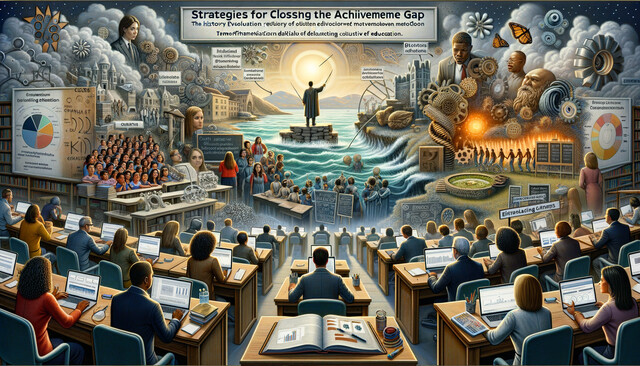Online Class: Implementing Project-Based Learning

no certificate
with CEU Certificate*
-
15Lessons
-
22Exams &
Assignments -
4Hours
average time -
0.4CEUs
Course Description
Imagine transforming your classroom into a vibrant ecosystem of discovery, where students don't just memorize facts but use their knowledge to engage with the world in meaningful ways. This is the promise of our course, "Implementing Project-Based Learning," designed to ignite both educators' and students' passions for inquiry and innovation, revolutionizing the educational experience.
In today's rapidly changing world, rigid, traditional educational methods often fall short in preparing students for an uncertain future. More than ever, there is a need for education systems to adopt flexible, student-centered approaches that emphasize real-world problem-solving, creativity, and critical thinking. This course is not just a tool but a necessity for educators who are dedicated to fostering these essential skills in their students, enabling them to stand out and succeed in any field they choose.
From the very first module, you'll dive into the transformative power of Project-Based Learning (PBL), uncovering its potential to turn standard curricula into powerful, real-life learning experiences. PBL sets the stage for students to immerse themselves in authentic challenges that matter to them, cultivating a deep sense of responsibility and initiative. Through PBL, your role as an educator shifts from a mere dispenser of knowledge to a guide who supports students as they embark on their own thrilling quests for solutions and understanding.
Consider the impact of engaging your students in a project that addresses global issues, such as climate change. They'll not only learn scientific facts and figures but will also collaborate, debate, and develop tangible solutions to problems facing our world. This kind of active, hands-on learning fosters a deeper connection to the material and a greater retention of knowledge, as students see first-hand the power of their ideas coming to life.
What makes this course essential is its commitment to authenticity and personal growth. Preparing students for the future requires more than just imparting knowledge; it involves equipping them with skills to navigate and thrive amidst complexity and uncertainty. With PBL, you'll witness your students learning to think critically, work collaboratively, and develop resilience�skills that are invaluable in the workforce. They'll learn to innovate and adapt, transforming challenges into opportunities, all while developing the kind of empathy and ethics crucial for future leaders.
At the heart of this course is its dynamic approach to leveraging modern technology. In the digital age, integrating technological tools into PBL is a game-changer, creating immersive learning environments that captivate students and prepare them for a tech-driven society. You will discover various methods to incorporate technology in your projects, from digital storytelling to interactive simulations, allowing students to employ contemporary tools to enhance their projects and build digital literacy�a skill set mandatory in today's interconnected world.
But the value of this course extends beyond your students. As an educator, you'll gain a deeper understanding of how to implement PBL effectively, aligning learning objectives with real-world applications. You'll explore cutting-edge assessment strategies that go beyond traditional grades, focusing on holistic rubrics and reflective evaluation to truly understand and nurture each student's unique learning journey.
"Implementing Project-Based Learning" is more than a course; it's a movement towards educational excellence and innovation. It empowers you to create inclusive classrooms where diverse learning styles are not just respected but celebrated, where students are not mere participants but active architects of their learning.
Enrolling in this course is your opportunity to spearhead this transformative shift in education�to nurture resourceful, confident, and capable students ready to tackle the challenges of tomorrow. Dive into this journey with us and experience the profound joy of seeing your students unlock their potential and enthusiasm for lifelong learning. Together, let's redefine education and inspire the leaders of tomorrow. Enroll today and be part of a future where education knows no bounds and every student is equipped to change the world.
- Completely Online
- Self-Paced
- 6 Months to Complete
- 24/7 Availability
- Start Anytime
- PC & Mac Compatible
- Android & iOS Friendly
- Accredited CEUs

Course Lessons
Lesson 1. Unlocking the Power of Project-Based Learning: The Future of Education
 Review Practice Worksheet: Lesson-1-HomeWork-17234.pdf
Review Practice Worksheet: Lesson-1-HomeWork-17234.pdf Lesson discussions: Reasons for Taking this Course
Lesson discussions: Reasons for Taking this Course Complete: Lesson 1 Activity
Complete: Lesson 1 Activity Assessment: Lesson 1 Review Exam
Assessment: Lesson 1 Review Exam
Lesson 2. Real-World Challenges and Student Engagement in PBL
 Review Practice Worksheet: Lesson-2-Activity-17236.pdf
Review Practice Worksheet: Lesson-2-Activity-17236.pdf Complete: Lesson 2 Activity
Complete: Lesson 2 Activity Assessment: Lesson 2 Review Exam
Assessment: Lesson 2 Review Exam
Lesson 3. Aligning Learning Goals with PBL for Holistic Education
 Review Practice Worksheet: Lesson-3-WordSearch-17238.pdf
Review Practice Worksheet: Lesson-3-WordSearch-17238.pdf Complete: Lesson 3 Activity
Complete: Lesson 3 Activity Assessment: Lesson 3 Review Exam
Assessment: Lesson 3 Review Exam
Lesson 4. The Dynamics of Teamwork in Educational Projects
 Review Practice Worksheet: Lesson-4-WordSearch-17240.pdf
Review Practice Worksheet: Lesson-4-WordSearch-17240.pdf Complete: Lesson 4 Activity
Complete: Lesson 4 Activity Assessment: Lesson 4 Review Exam
Assessment: Lesson 4 Review Exam
Lesson 5. PBL in the Digital Age
 Review Practice Worksheet: Lesson-5-WordSearch-17242.pdf
Review Practice Worksheet: Lesson-5-WordSearch-17242.pdf Complete: Lesson 5 Activity
Complete: Lesson 5 Activity Assessment: Lesson 5 Review Exam
Assessment: Lesson 5 Review Exam
Lesson 6. Feedback Loops in Learning: Crafting Effective Formative Assessments for PBL
 Review Practice Worksheet: Lesson-6-Downloadable-17244.pdf
Review Practice Worksheet: Lesson-6-Downloadable-17244.pdf Assessment: Lesson 6 Review Exam
Assessment: Lesson 6 Review Exam
Lesson 7. Fostering Lifelong Learning through Project-Based Inquiry
 Review Practice Worksheet: Lesson-7-WorkSheet-17246.pdf
Review Practice Worksheet: Lesson-7-WorkSheet-17246.pdf Complete: Lesson 7 Activity
Complete: Lesson 7 Activity Assessment: Lesson 7 Review Exam
Assessment: Lesson 7 Review Exam
Lesson 8. Mastering the Nuances of PBL: The Educator's Role
 Review Practice Worksheet: Lesson-8-WorkSheet-17248.pdf
Review Practice Worksheet: Lesson-8-WorkSheet-17248.pdf Complete: Lesson 8 Activity
Complete: Lesson 8 Activity Assessment: Lesson 8 Review Exam
Assessment: Lesson 8 Review Exam
Lesson 9. Unlocking Student Potential through Goal Setting and Strategic Planning
 Review Practice Worksheet: Lesson-9-WorkSheet-17250.pdf
Review Practice Worksheet: Lesson-9-WorkSheet-17250.pdf Assessment: Lesson 9 Review Exam
Assessment: Lesson 9 Review Exam
Lesson 10. Unlocking Potential Through Collaborative Learning
 Review Practice Worksheet: Lesson-10-Downloadable-17252.pdf
Review Practice Worksheet: Lesson-10-Downloadable-17252.pdf Assessment: Lesson 10 Review Exam
Assessment: Lesson 10 Review Exam
Lesson 11. The Importance of Reflection in Project-Based Learning: Bridging Knowledge and Experience
 Review Practice Worksheet: Lesson-11-WordSearch-17254.pdf
Review Practice Worksheet: Lesson-11-WordSearch-17254.pdf Assessment: Lesson 11 Review Exam
Assessment: Lesson 11 Review Exam
Lesson 12. Stakeholder Strategies for Successful Project-Based Learning
 Review Practice Worksheet: Lesson-12-Activity-17256.pdf
Review Practice Worksheet: Lesson-12-Activity-17256.pdf Assessment: Lesson 12 Review Exam
Assessment: Lesson 12 Review Exam
Lesson 13. Creating Inclusive and Dynamic Classrooms with PBL
 Review Practice Worksheet: Lesson-13-HomeWork-17258.pdf
Review Practice Worksheet: Lesson-13-HomeWork-17258.pdf Assessment: Lesson 13 Review Exam
Assessment: Lesson 13 Review Exam
Lesson 14. Crafting Effective Evaluations for Rich Learning Experiences
 Review Practice Worksheet: Lesson-14-WordSearch-17260.pdf
Review Practice Worksheet: Lesson-14-WordSearch-17260.pdf Assessment: Lesson 14 Review Exam
Assessment: Lesson 14 Review Exam
Lesson 15. Empowering Student Agency and Real-World Engagement in PBL
 Review Practice Worksheet: Lesson-15-Downloadable-17261.pdf
Review Practice Worksheet: Lesson-15-Downloadable-17261.pdf Lesson discussions: End of Course Poll; Course Comments
Lesson discussions: End of Course Poll; Course Comments Assessment: Lesson 15 Review Exam
Assessment: Lesson 15 Review Exam
Learning Outcomes
- Define and apply the principles of Project-Based Learning (PBL), including inquiry and collaboration, to design a real-world project that addresses a community issue.
- Demonstrate the ability to critically evaluate the impact of PBL through reflective practices, including assessing project outcomes and identifying areas for personal and group improvement.
- Identify key collaboration skills developed through project-based learning, such as teamwork, communication, and consensus building.#
- Recognize the role of student-driven inquiry in fostering ownership and autonomy within project-based learning environments.
- Demonstrate higher-order thinking skills by integrating curriculum standards into project-based learning activities.
- Recognize the distinction between content and performance standards in project-based learning contexts.
- Define the principles of collaborative learning and explain their application in project-based learning settings, particularly focusing on how they foster problem-solving skills and critical thinking.
- Demonstrate effective communication strategies within a project-based learning environment by outlining the steps to establish group norms and resolve conflicts, enhancing teamwork and collaboration skills.
- Demonstrate the ability to analyze and integrate information from digital libraries and reference management tools, such as JSTOR and Zotero, to support project-based research tasks.
- Define the role of technology tools like Trello, Asana, and MindMeister in organizing and managing project tasks, ensuring an efficient collaboration process.
- Create and use reflection journals to critically analyze and document individual progress and learning experiences in PBL.
- Demonstrate the ability to provide specific, timely feedback in PBL to enhance learner engagement and understanding.
- Demonstrate the ability to design an inquiry question that aligns with personal interests and project goals by formulating at least two questions within a given framework.
- Demonstrate mastery of lesson content at levels of 70% or higher.
Additional Course Information

- Document Your Lifelong Learning Achievements
- Earn an Official Certificate Documenting Course Hours and CEUs
- Verify Your Certificate with a Unique Serial Number Online
- View and Share Your Certificate Online or Download/Print as PDF
- Display Your Certificate on Your Resume and Promote Your Achievements Using Social Media

Choose Your Subscription Plan
No Certificate / No CEUs
This course only
| Includes certificate | X |
| Includes CEUs | X |
| Self-paced |

|
| Instructor support |

|
| Time to complete | 6 months |
| No. of courses | 1 course |
Certificate & CEUs
This course only
| Includes certificate |

|
| Includes CEUs |

|
| Self-paced |

|
| Instructor support |

|
| Time to complete | 6 months |
| No. of courses | 1 course |
Certificates & CEUs
Includes all 600+ courses
| Includes certificate |

|
| Includes CEUs |

|
| Self-paced |

|
| Instructor support |

|
| Time to complete | 12 Months |
| No. of courses | 600+ |
Certificates & CEUs
Includes all 600+ courses
| Includes certificate |

|
| Includes CEUs |

|
| Self-paced |

|
| Instructor support |

|
| Time to complete | 24 Months |
| No. of courses | 600+ |
Related Courses
-
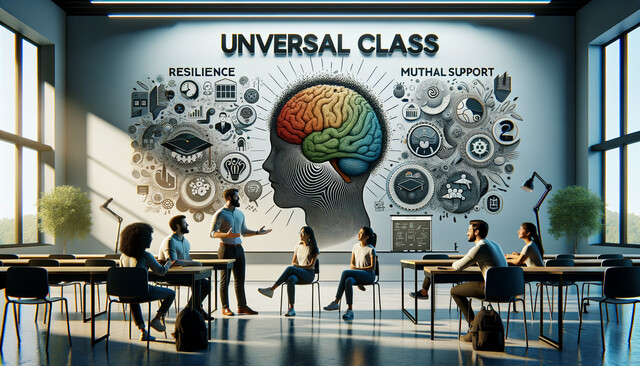 4 hours
0.4 CEUs
Facilitating Online and Hybrid Learning
+ More Info
4 hours
0.4 CEUs
Facilitating Online and Hybrid Learning
+ More Info
-
 5 hours
0.5 CEUs
Developing Critical Thinking Skills
+ More Info
5 hours
0.5 CEUs
Developing Critical Thinking Skills
+ More Info
-
 3 hours
0.3 CEUs
Collaborative Teaching Approaches
+ More Info
3 hours
0.3 CEUs
Collaborative Teaching Approaches
+ More Info
-
 7 hours
0.7 CEUs
Civic Education and Engagement
+ More Info
7 hours
0.7 CEUs
Civic Education and Engagement
+ More Info
-
 4 hours
0.4 CEUs
Utilizing Open Educational Resources
+ More Info
4 hours
0.4 CEUs
Utilizing Open Educational Resources
+ More Info
-
 3 hours
0.3 CEUs
Effective Literacy Instruction in Early Education
+ More Info
3 hours
0.3 CEUs
Effective Literacy Instruction in Early Education
+ More Info
-
 4 hours
0.4 CEUs
Enhancing Student Engagement and Motivation
+ More Info
4 hours
0.4 CEUs
Enhancing Student Engagement and Motivation
+ More Info
-
 7 hours
0.7 CEUs
Designing Interdisciplinary Curricula
+ More Info
7 hours
0.7 CEUs
Designing Interdisciplinary Curricula
+ More Info
-
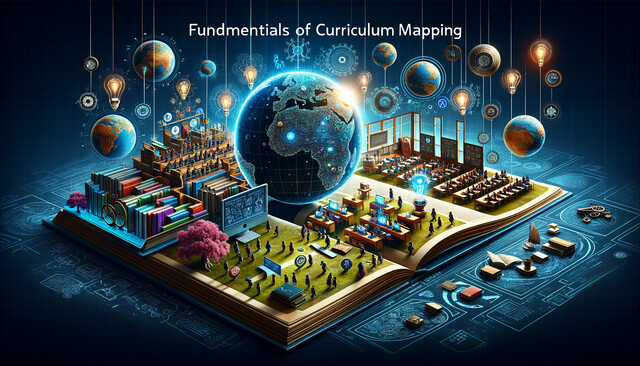 5 hours
0.5 CEUs
Fundamentals of Curriculum Mapping
+ More Info
5 hours
0.5 CEUs
Fundamentals of Curriculum Mapping
+ More Info
-
 4 hours
0.4 CEUs
Global Competence in a Changing World
+ More Info
4 hours
0.4 CEUs
Global Competence in a Changing World
+ More Info
-
 5 hours
0.5 CEUs
Mentoring and Coaching New Teachers
+ More Info
5 hours
0.5 CEUs
Mentoring and Coaching New Teachers
+ More Info
-
 5 hours
0.5 CEUs
Culturally Responsive Teaching Practices
+ More Info
5 hours
0.5 CEUs
Culturally Responsive Teaching Practices
+ More Info
-
 4 hours
0.4 CEUs
Designing Experiential Learning Opportunities
+ More Info
4 hours
0.4 CEUs
Designing Experiential Learning Opportunities
+ More Info
-
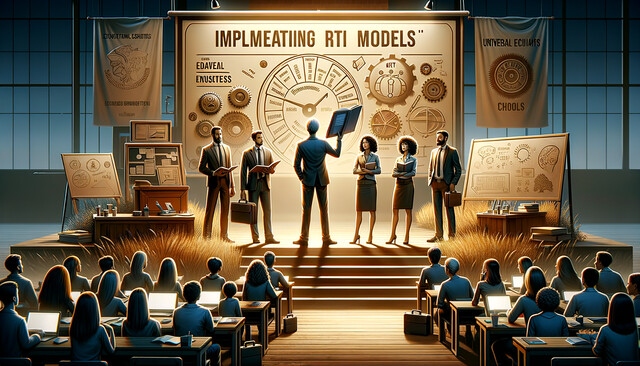 5 hours
0.5 CEUs
Implementing RTI Models in Schools
+ More Info
5 hours
0.5 CEUs
Implementing RTI Models in Schools
+ More Info
-
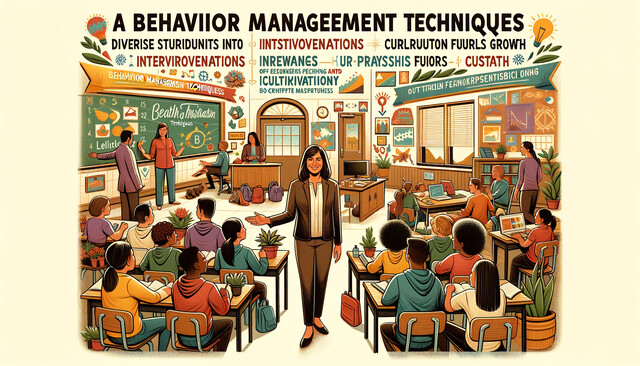 6 hours
0.6 CEUs
Behavior Management Techniques
+ More Info
6 hours
0.6 CEUs
Behavior Management Techniques
+ More Info
-
 4 hours
0.4 CEUs
Principles of Adult Learning Theory
+ More Info
4 hours
0.4 CEUs
Principles of Adult Learning Theory
+ More Info
-
 4 hours
0.4 CEUs
Innovative Curriculum Design for the 21st Century
+ More Info
4 hours
0.4 CEUs
Innovative Curriculum Design for the 21st Century
+ More Info
-
 6 hours
0.6 CEUs
Creating Learner-Centered Classrooms
+ More Info
6 hours
0.6 CEUs
Creating Learner-Centered Classrooms
+ More Info
-
 5 hours
0.5 CEUs
Understanding Educational Neuroscience
+ More Info
5 hours
0.5 CEUs
Understanding Educational Neuroscience
+ More Info
-
 7 hours
0.7 CEUs
Strategies for Closing the Achievement Gap
+ More Info
7 hours
0.7 CEUs
Strategies for Closing the Achievement Gap
+ More Info
-
 4 hours
0.4 CEUs
The Role of Feedback in Student Learning
+ More Info
4 hours
0.4 CEUs
The Role of Feedback in Student Learning
+ More Info
-
 3 hours
0.3 CEUs
Preparing Students for Careers of the Future
+ More Info
3 hours
0.3 CEUs
Preparing Students for Careers of the Future
+ More Info
-
 3 hours
0.3 CEUs
Building Resilience in Students
+ More Info
3 hours
0.3 CEUs
Building Resilience in Students
+ More Info
-
 7 hours
0.7 CEUs
Integrating Technology in Education
+ More Info
7 hours
0.7 CEUs
Integrating Technology in Education
+ More Info
-
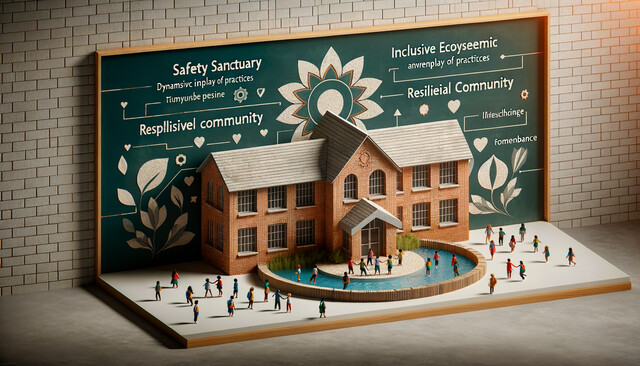 5 hours
0.5 CEUs
Creating a Safe and Supportive Learning Environment
+ More Info
5 hours
0.5 CEUs
Creating a Safe and Supportive Learning Environment
+ More Info
-
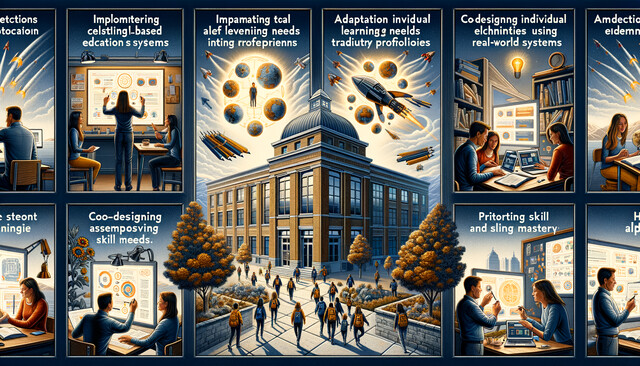 4 hours
0.4 CEUs
Implementing Competency-Based Education Systems
+ More Info
4 hours
0.4 CEUs
Implementing Competency-Based Education Systems
+ More Info
-
 7 hours
0.7 CEUs
Introduction to Instructional Design
+ More Info
7 hours
0.7 CEUs
Introduction to Instructional Design
+ More Info
-
 5 hours
0.5 CEUs
Utilizing Data to Drive Instruction
+ More Info
5 hours
0.5 CEUs
Utilizing Data to Drive Instruction
+ More Info
-
 3 hours
0.3 CEUs
Empowering Students through Self-Assessment
+ More Info
3 hours
0.3 CEUs
Empowering Students through Self-Assessment
+ More Info
-
 4 hours
0.4 CEUs
Creating a Culture of Collaboration
+ More Info
4 hours
0.4 CEUs
Creating a Culture of Collaboration
+ More Info
-
 3 hours
0.3 CEUs
Holistic Approaches to Education
+ More Info
3 hours
0.3 CEUs
Holistic Approaches to Education
+ More Info
-
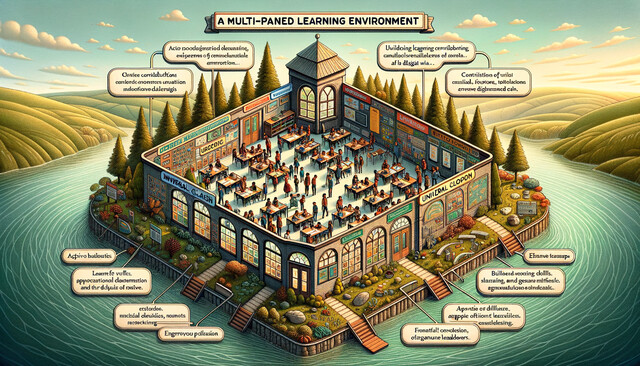 6 hours
0.6 CEUs
Building Effective Parent-Teacher Partnerships
+ More Info
6 hours
0.6 CEUs
Building Effective Parent-Teacher Partnerships
+ More Info
-
 3 hours
0.3 CEUs
Designing STEM Curriculum
+ More Info
3 hours
0.3 CEUs
Designing STEM Curriculum
+ More Info
-
 6 hours
0.6 CEUs
Supporting Students with Special Needs
+ More Info
6 hours
0.6 CEUs
Supporting Students with Special Needs
+ More Info
-
 3 hours
0.3 CEUs
Improving Teacher Retention and Sustainability
+ More Info
3 hours
0.3 CEUs
Improving Teacher Retention and Sustainability
+ More Info
-
 5 hours
0.5 CEUs
Implementing Evidence-Based Practices
+ More Info
5 hours
0.5 CEUs
Implementing Evidence-Based Practices
+ More Info
-
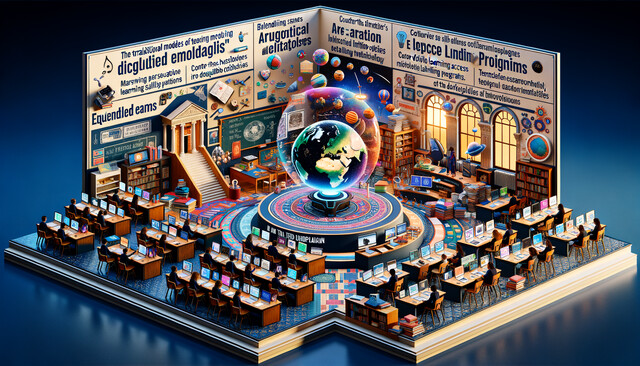 7 hours
0.7 CEUs
Blended Learning Models in Schools
+ More Info
7 hours
0.7 CEUs
Blended Learning Models in Schools
+ More Info
-
 6 hours
0.6 CEUs
Classroom Management for New Teachers
+ More Info
6 hours
0.6 CEUs
Classroom Management for New Teachers
+ More Info


